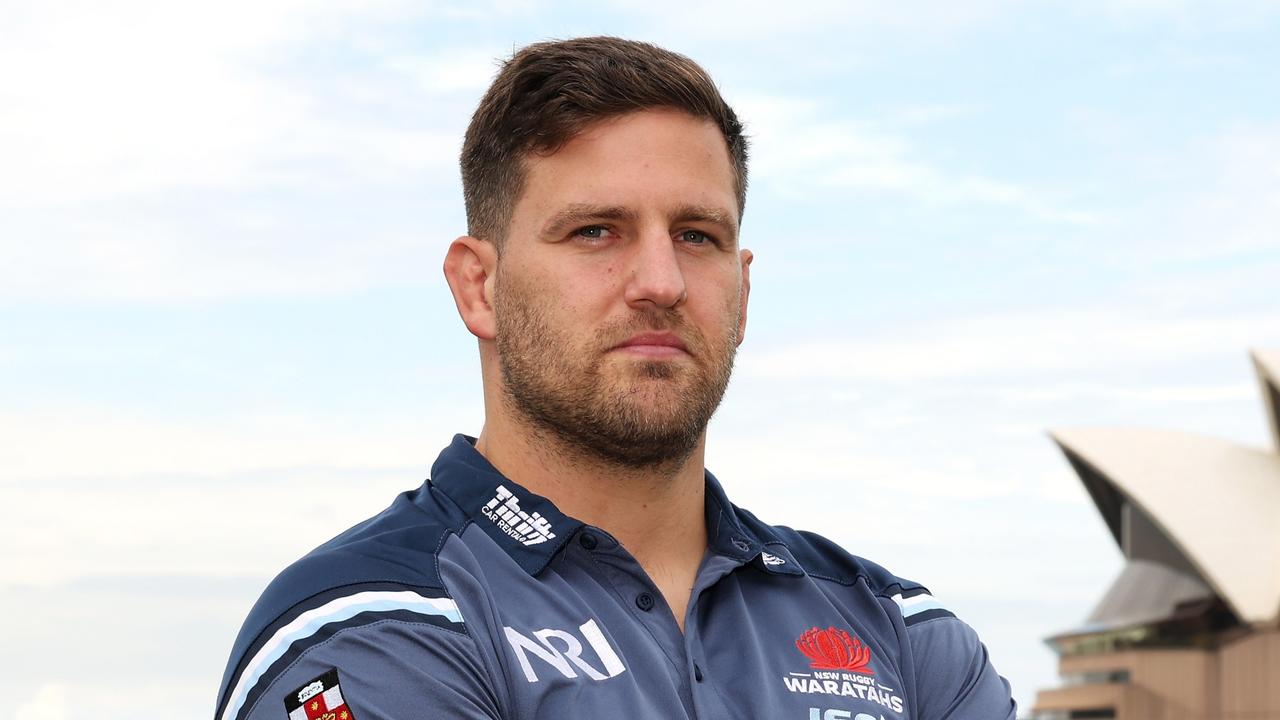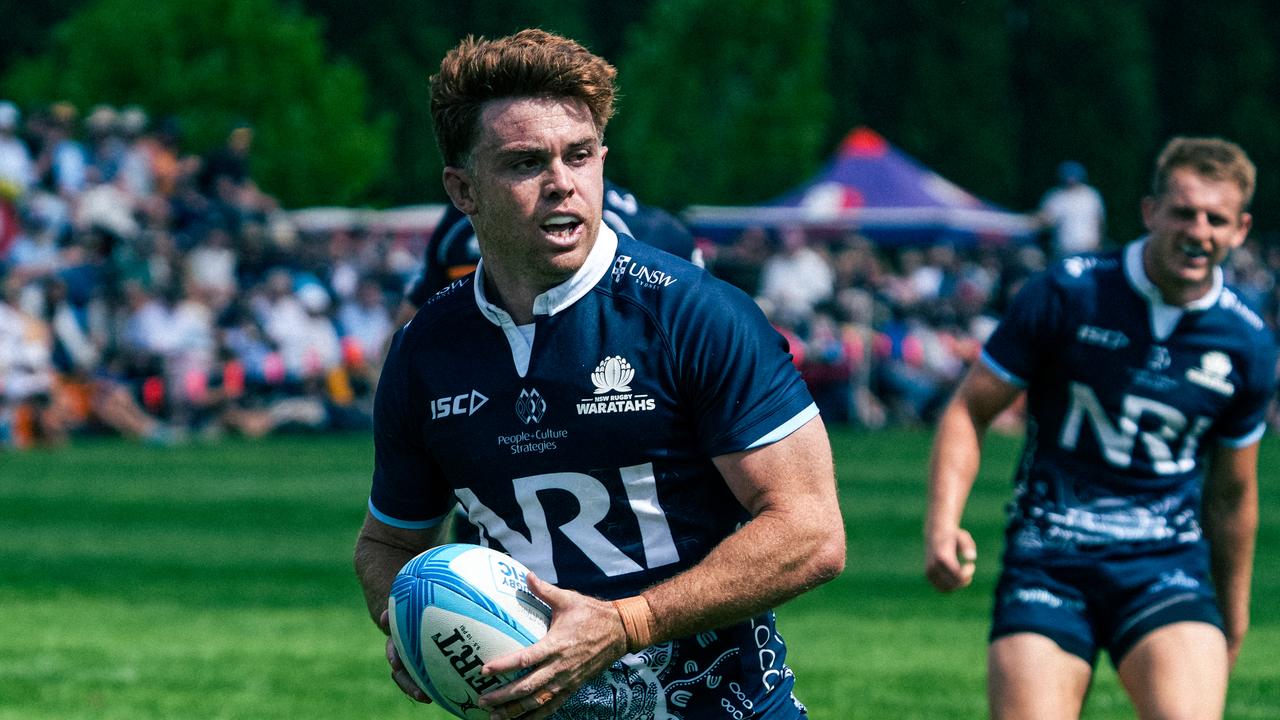Super rugby disaster leads to fresh approach from Australian franchises
THE All Blacks have been doing it for years but Australia’s Super rugby coaches have finally decided to share information for the benefit of their own teams and the Wallabies.
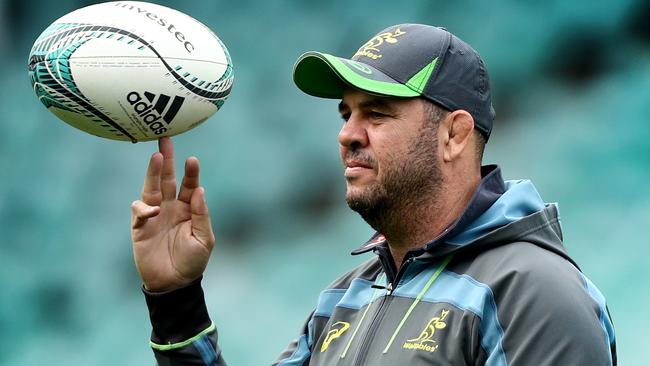
Rugby
Don't miss out on the headlines from Rugby. Followed categories will be added to My News.
EVERY Australian Super Rugby’s player’s personal fitness data is now being uploaded daily to a central hub at ARU headquarters in an unprecedented move to strengthen local teams including the Wallabies.
The approach copies what the All Blacks have been doing for years and comes after a disastrous 2016 in which no Australian Super team made the semi-finals and the Wallabies had one of their worst seasons on record.
The sharing of data has only been made possible by all five Australian Super Rugby coaches agreeing to share their data and trusting that the sensitive information will not be leaked; factors that have prevented this approach from going ahead for several years.
Driven by Wallabies coach Michael Cheika and head of physical performance Haydn Masters, the idea involves all Australian clubs uploading data of their players’ weights and running results to a centralised website run out of St Leonard’s.
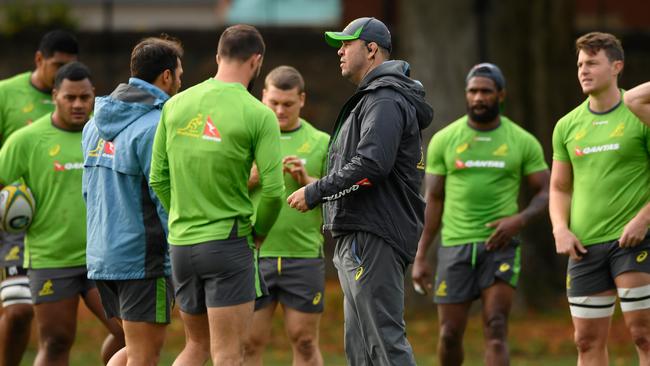
The information is gathered and scientific analysis determines whether a player needs to become fitter, or if he must lighten his workload.
Under the New Zealand system, All Blacks coach Steve Hansen can request Super coaches from standing down key players from certain games in order to be fresh for Test matches, which we’ll likely see this year as they prepare for the British & Irish Lions in June.
But Australia’s system is not centralised, and players who are on the verge of burnout will likely be told to have lighter training workloads as opposed to missing games.
ARU chief operating officer Rob Clarke believes the information sharing agreement will reignite the performance of Australia’s Super sides and the Wallabies.
“It hasn’t been done at this level ever, in my experience,” Clarke told the Daily Telegraph.
“That can only be beneficial for all of our programs, testing, and the systems we’ve put in place to measure players are no in greater alignment than ever before.
“Our governance structure doesn’t necessarily encourage alignment because it’s a federated model, so everybody has autonomy.
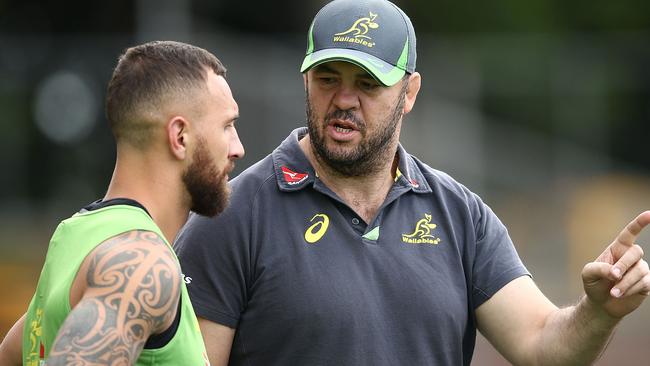
“But we’ve got a very mature and wise group of CEOs and coaches now who see that together we’re stronger.
“It doesn’t mean they lose their differentiation in the way they want to do what they do, but around performance factors there’s now the understanding that we can learn from each other.
“It’s a journey, everyone has put their hands in the middle and said ‘We’re going to go down this path’. There will be some bumps on that road no doubt, but for mine, having been involved in two Super Rugby clubs and the ARU twice over a 10-year period, this is by far the most positive and productive direction that I’m seeing.
“The technology available to us now means we can monitor every single player in the game in Australia and we know where they are on the fitness continuum, how their training loads are affecting outcomes.
“We’re even getting close to being able to predict when injuries might be around the corner from some players, based on that information, which then goes into planning for individual programs.”
The Daily Telegraph asked all five Australian Super coaches why they finally agreed to sharing this data
DARYL GIBSON, WARATAHS
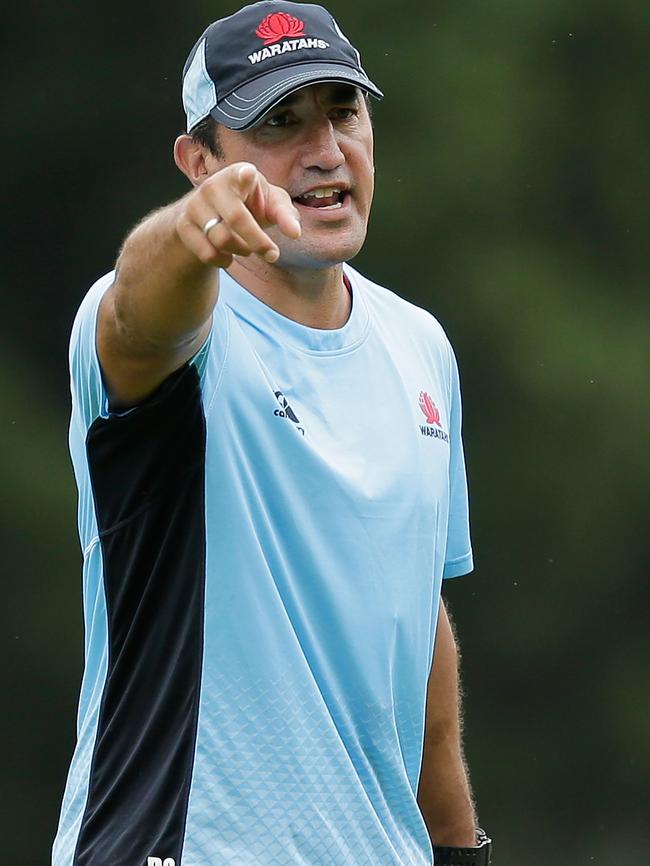
“We have been quite factionalised and tribal in our approach in Australia, now steps have been taken to work together.
“To get to a place of centralisation, without centralisation, takes good relationships and a win-win scenario — how does the club win and how does the national union win?
“I think we’re getting close to that space.
“I prefer this system, the national union and Cheika trusting us with their players, the Waratahs take that very seriously in terms of managing loads, how much game-time they get, knowing they have to play 10 months of the year.”
STEPHEN LARKHAM, BRUMBIES
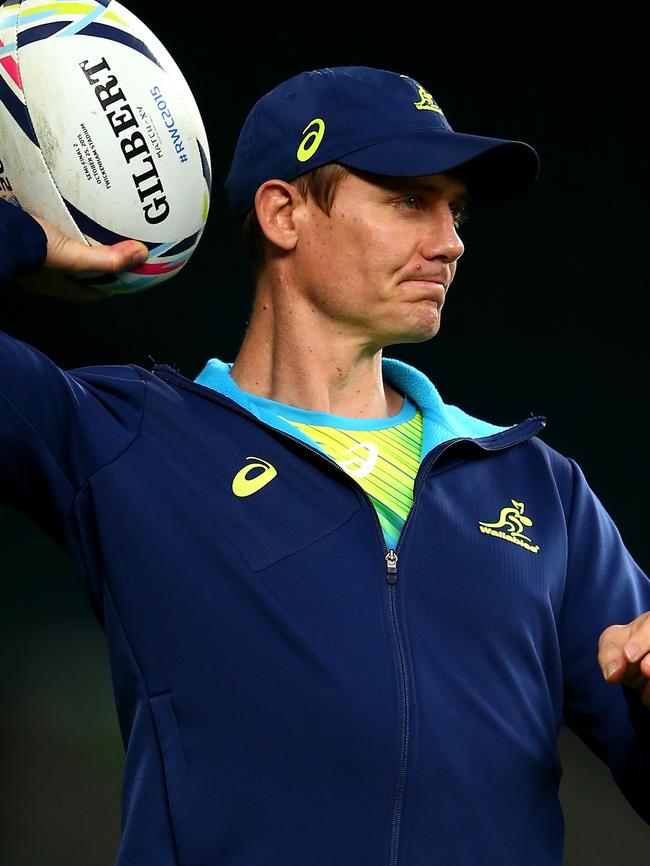
“It’s been something we’ve wanted for a while but we’ve lacked the direction at the top level.
“Cheik and Haydn are passionate about knowing where the players are at.
“From our perspective the issue has always been coming out of our program, going into the June [Test] program then coming back into our program, what’s the crossover there in terms of injuries?
“Two years ago the Brumbies picked up 11 injuries through that period which hurt us at the back end of the season.
“The June Test window was a big catalyst for making sure we shared data so we knew the load from there to there so we could manage the loads properly.
“The simplest way to explain it is that a change in load can most likely result in injury.”
TONY McGAHAN, REBELS
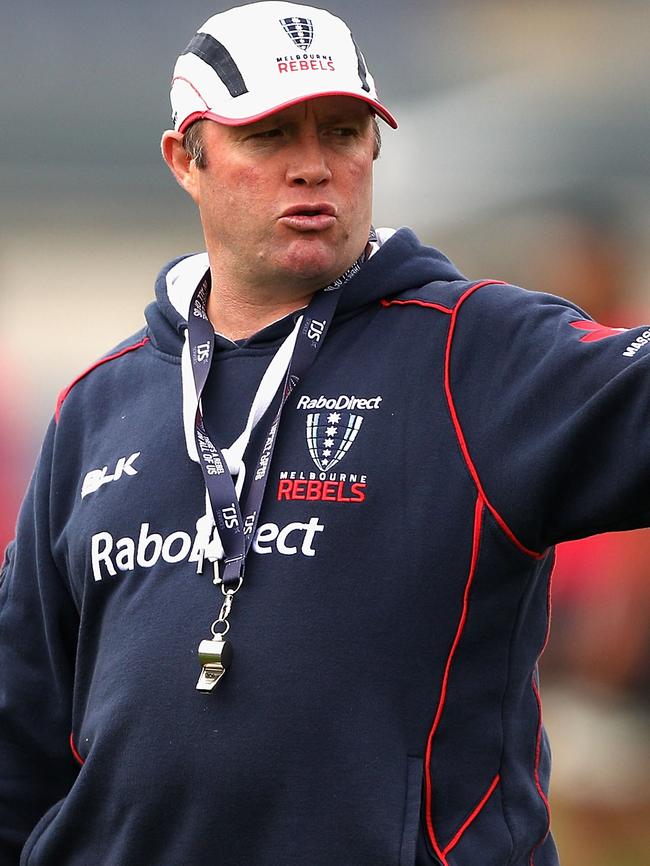
“We’re really looking forward to getting some stuff back [from Wallabies camps] which is the big thing.
“You look at how aligned New Zealand are across all their programs, whether it’s Super Rugby, national rugby, under-age 20s et cetera, there’s alignment in every part of it.
“So I think 2017, we’re probably a bit behind with that sort of thing, but it’s fantastic to see there’s some progress being made on that.
“You’ll see everyone right behind the Super Rugby sides, and then right behind the Wallabies, that’s only going to be a good thing.”
NICK STILES, REDS
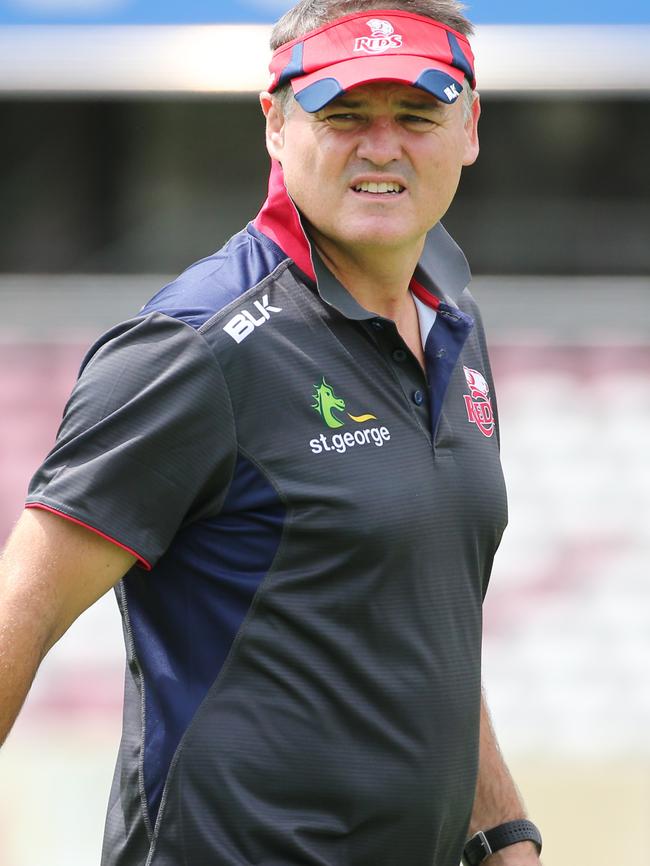
“Data is just pure data, it’s what you do in and around that data that gives you that point of difference.
“I think it’s a fantastic concept that the Australian Rugby Union has embraced and all the Super Rugby coaches have embraced as well.
“Yes, we’re competing against each other, but the more successful we can be as a collective group is going to make Australian rugby stronger, which will ultimately continue to produce better footballers.
“You need good footballers to win so I think it’s a win-win situation for Super Rugby franchises and also for the Wallabies.”
DAVID WESSELS, FORCE
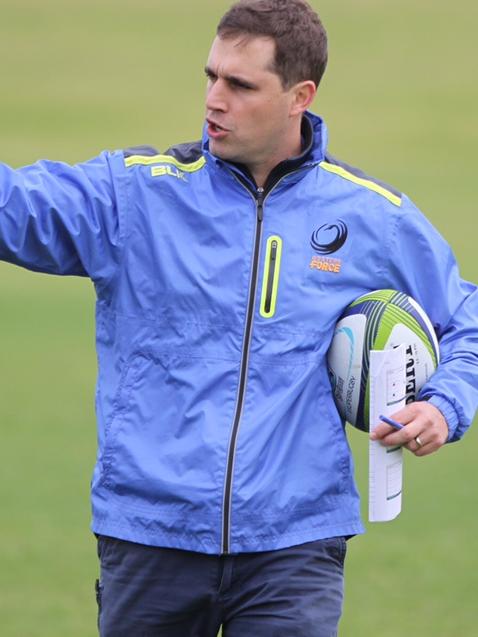
“People in South Africa and Australia lose sight of the fact that we’re all competing against, in New Zealand, not only the most successful rugby nation of all time, but probably the most successful international sporting team of all time.
“They’ve dominated rugby in a way that very few countries have dominated any sport for a long period of time.
“To be fair it’s taken us a while to wake up, but what that’s forced in us is just to figure out how we can do things differently, pool our resources in order to overcome them.
“I think Michael Cheika and his staff have done a fantastic job in sharing all of their information.
“To be honest it’s early days and there’s some changes in coaching, but the timing to get it off the ground is right.”
Originally published as Super rugby disaster leads to fresh approach from Australian franchises

